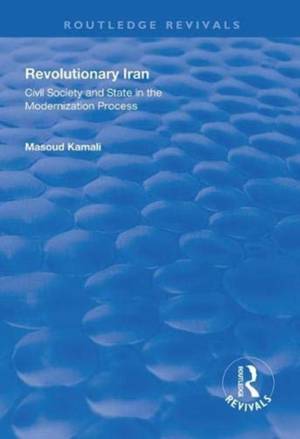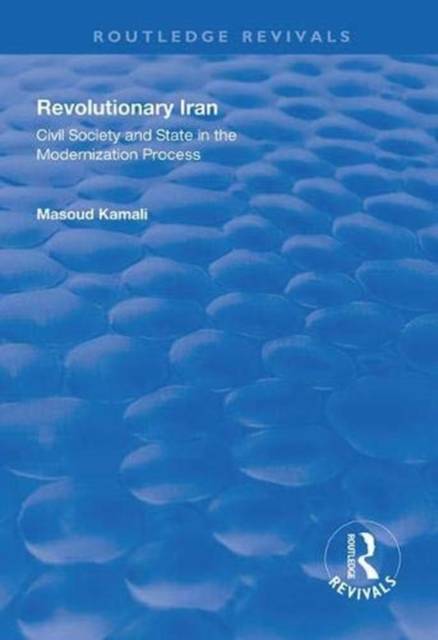
- Retrait gratuit dans votre magasin Club
- 7.000.000 titres dans notre catalogue
- Payer en toute sécurité
- Toujours un magasin près de chez vous
- Retrait gratuit dans votre magasin Club
- 7.000.0000 titres dans notre catalogue
- Payer en toute sécurité
- Toujours un magasin près de chez vous
Description
First published in 1998, Revolutionary Iran investigates two major political transformations in the modern history of Iran: the Constitutional Revolution of 1905-09 and the Islamic Revolution 1976-79 and their relation to the modernization of Iran in this century. It addresses a core question: Why did the clergy not take political power in the Constitutional Revolution when Iran was a traditional society and they played a key leadership role in the revolution; yet they succeeded in the more modern Iran of 1979.
Characterization of socio-economic relationships between the two major influential groups of civil society in Iran and their role in political transformation is considered central for answering such a question. The book deals with revolution in terms of relationships between civil society and state; which, it is argued, are central to analysing and understanding modern movements in Iran and other Islamic countries. The major contribution of the book can be summarized as follows:
- It identifies a socio-political division of power and influence between state and civil society during a long period of Iran's Islamic history as the key theoretical basis for understanding modern transformations of Iranian society. Such a division has, so far, been largely ignored.
- It explores the clergy and bazaris as the social basis of civil society in Iran, and challenges Gellner's viewpoint that an Islamic civil society is an impossibility.
- It argues that the modernization of religion and the creation of modern political theories by the clergy were both crucial means for defeating a modern authoritarian state and seizing political power.
- It identifies the main social group without whom the Islamic Revolution of Iran would not have achieved political victory, i.e., the dispossessed.
- It presents a theoretical basis for analysing and understanding new Islamic movements in the Islamic world.
Spécifications
Parties prenantes
- Auteur(s) :
- Editeur:
Contenu
- Nombre de pages :
- 318
- Langue:
- Anglais
- Collection :
Caractéristiques
- EAN:
- 9781138330924
- Date de parution :
- 30-06-20
- Format:
- Livre broché
- Format numérique:
- Trade paperback (VS)
- Dimensions :
- 152 mm x 219 mm
- Poids :
- 439 g

Les avis
Nous publions uniquement les avis qui respectent les conditions requises. Consultez nos conditions pour les avis.






